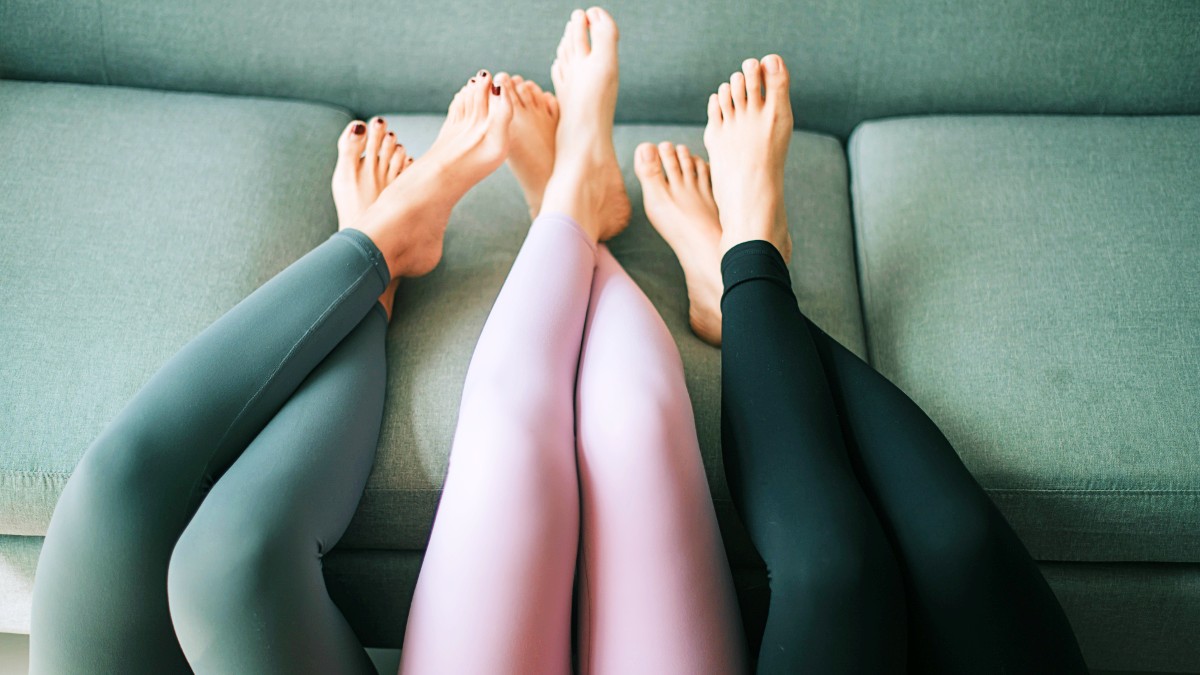How ‘Legging Legs’ Became a Trend So Toxic That TikTok Had to Ban It

Most TikTok trends come and go naturally, but many of the app’s users might be curious about what happened to the legging legs trend. After all, it’s rare for a trend to arise that is so bad that the platform actually takes action to ban it.
The platform frequently gives rise to strange trends and challenges. Although most are quite harmless, such as the orange peel theory, some very dangerous ones have arisen. The worst ones usually involve encouraging reckless behavior that could endanger TikTok users and others, such as the blackout challenge, NyQuil chicken challenge, and skull breaker challenger. From time to time, the platform has been forced to ban specific challenges or issue warnings to users and their families about perilous trends, especially since children are the most likely to be persuaded to participate.
Interestingly, the legging legs trend wasn’t a physical challenge. However, TikTok’s recognition of the danger was a small victory for the body positivity movement, especially because it’s very rare for social media to crack down on the promotion of harmful beauty standards.
What are legging legs?
“Legging legs” is essentially a new phrase created to reference thigh gaps. Thigh gaps became a mania in the 2010s due largely to a Victoria’s Secret fashion show that featured several models with visible gaps between their thighs. Soon, thigh gaps took the internet by storm, especially on platforms like Tumblr, where they were presented as a beauty ideal that all women should strive for. In addition to pushing largely unattainable body standards, for a substantial portion of the population, it is physically impossible to have a thigh gap when standing with one’s feet together since it’s a matter of bone structure and not weight.
The thigh gap became an extremely dangerous beauty ideal, as women and girls resorted to extreme measures in an attempt to achieve something that was not actually possible. As a result, those who were young women or girls in the 2010s were horrified to discover the thigh gap craze spreading through TikTok under the term “legging legs.” The trend seemingly originated in October 2023, when a woman made a TikTok filming her reaction to seeing a woman with “perfect leggings [sic] legs.” By January 2024, users were taken by the idea of what constitutes the perfect legging legs, and it somehow arose that they were thin legs with a thigh gap.
Users made videos describing what legging legs were or showing off their legging legs. All of these videos implied that one had to have legging legs to be allowed to wear leggings or to look attractive in them. Fortunately, women quickly took action to snuff out the trend as soon as it started. Many of the original harmful videos have been deleted, but several positive ones remain as women slammed the trend and pointed out that there’s no such thing as the perfect legs to wear leggings. All legs are legging legs. Many women also reflected on the thigh gap craze of the 2010s and expressed outrage that users were trying to put this generation of young girls through what they experienced.
What happened to the legging legs trend?
Fortunately, TikTok heeded calls to take action against the legging legs trend. In early February, TikTok entirely banned the term “legging legs” from the platform. The hashtag has been deleted, and when users search for “legging legs,” the only thing that comes up is a page that reads, “You’re not alone. If you or someone you know is having a hard time, help is always available.” The page also includes a link to resources on eating disorders.
The banning of the trend is quite a victory, considering TikTok has long had issues with moderating and removing harmful content. Meanwhile, the ban was implemented in large part due to Millennials speaking out to ensure that the next generation doesn’t go through what they experienced. It certainly raises hope of further dismantling of toxic beauty standards as women show a desire to prevent history from repeating itself.
(featured image: Edwin Tan / Getty)
Have a tip we should know? [email protected]